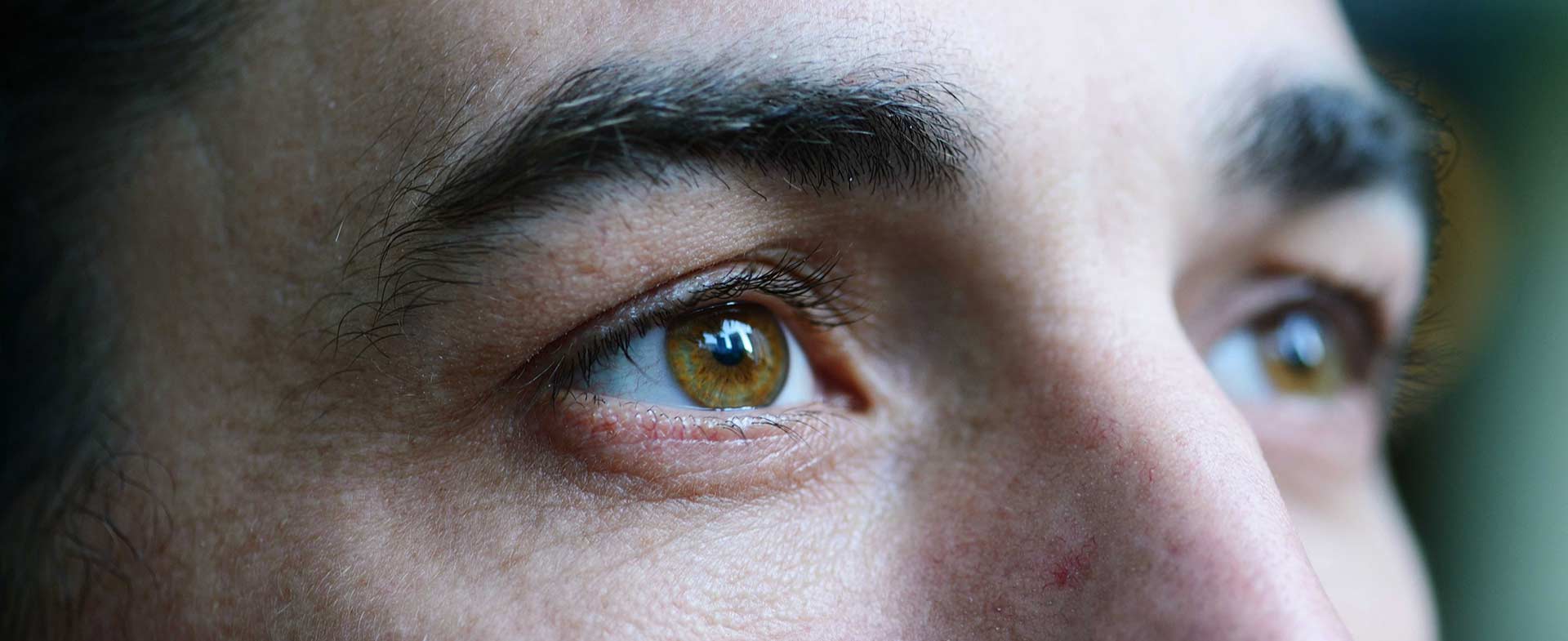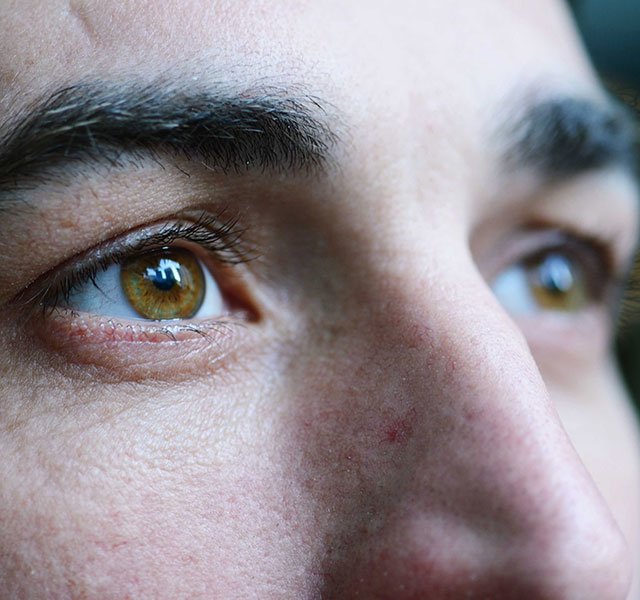When you notice little spots floating across your vision, it can be unnerving.
“What causes this?”
“Will it go away?”
“Should I worry?”
Eye floaters, also known as eye spots, are small, semi-transparent or cloudy specks or cobwebs within the eye. They move as the eye moves, making it difficult to focus on them, and they also may be more noticeable when you’re looking at a bright background, such as a blue sky or white piece of paper.
“Eye floaters are often harmless, and most people can expect to experience them at some point,” says Allan Rinke, M.D., a comprehensive ophthalmologist at Henry Ford Health. “But in certain cases, they may be the sign of a more serious condition.”
What Causes Eye Floaters?
- Age: As you get older, the clear, jelly-like fluid inside your eye known as the vitreous starts to deteriorate. This can cause the vitreous to detach from the light-sensitive tissue at the back of the eye (the retina) and produce debris, which casts shadows on the retina. These shadows appear as eye floaters.
- Nearsightedness: If you are extremely nearsighted, you may start to see eye floaters at an earlier age. This is because the eye’s elongated shape increases the likelihood that the vitreous will detach from the retina.
- Surgery: Certain eye procedures, such as cataract surgery, may increase the likelihood of developing a vitreous detachment and floaters.
- Injuries: When an eye injury causes bleeding in the eye, these blood cells also can appear as floaters.
- Diabetes: All people with diabetes are at increased risk for developing several conditions, including eye floaters. Floaters in diabetics could also represent bleeding within the eye, which requires urgent evaluation. Controlling blood sugar levels, blood pressure and cholesterol levels can help to reduce this risk.
- Inflammation: When the inside of your eye becomes inflamed, it’s known as uveitis. The result of infection or an inflammatory disease, uveitis can produce new debris in the vitreous that appears as eye floaters.
- Retinal tear or detachment: In some cases, as the deteriorating vitreous pulls away from the back of the eye, it can exert a tugging pressure on the retina, causing a tear. Left untreated, a retinal tear can lead to retinal detachment. While the vitreous detaching from the retina is a normal part of aging, the retina itself detaching from the eye is not. A detached retina is an emergency condition that can cause permanent visual impairment or blindness.
When It’s Time to See a Doctor
“Once you get eye floaters, they typically do not go away,” Dr. Rinke says. “Many people learn to live with them, and may notice them less over time.”
However, if you experience a new onset of floaters or any of the following symptoms, Dr. Rinke recommends getting a comprehensive eye exam from an ophthalmologist to check for a retinal tear or detachment, or another underlying cause:
- An increasing number of eye floaters over time
- A sudden appearance of many floaters at once
- A sudden increase in the size of the spots
- Flashes of light that accompany the floaters
- Partial vision loss
To schedule a comprehensive ophthalmology exam, visit henryford.com or call 1-800-363-7575.
Dr. Allan Rinke is a comprehensive ophthalmologist. He sees patients at the Henry Ford OptimEyes Center in Lake Orion and the Henry Ford OptimEyes Super Vision Center in Sterling Heights.



